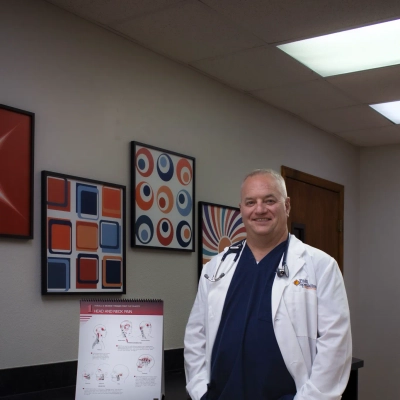17 Considerations for Discussing End-of-Life Care With Geriatric Patients
End-of-life care discussions with geriatric patients require sensitivity, understanding, and expert guidance. This article explores essential considerations for healthcare professionals when navigating these crucial conversations. Drawing from insights provided by experts in the field, it offers practical strategies to ensure patient-centered, culturally sensitive, and ethically sound approaches to end-of-life planning.
- Start End-of-Life Conversations Early
- Address Spiritual Needs in Advance Directives
- Examine Family Dynamics Before Medical Decisions
- Identify True Decision-Makers in Family System
- Focus on Patient's Core Values
- Honor Personal Beliefs in Care Planning
- Integrate Directives into Treatment Discussions
- Communicate Honestly About End-of-Life Care
- Understand Legal Rights for Care Decisions
- Manage Family Trauma Responses First
- Recognize Cultural Differences in Decision-Making
- Clarify Medicare Coverage for End-of-Life Care
- Create Accessible Medical Decision Roadmap
- Normalize End-of-Life Planning Conversations
- Balance Patient Autonomy with Family Support
- Prioritize Mental Health in Advance Planning
- Manage Pain to Enable Clear Communication
Start End-of-Life Conversations Early
After 20 years of handling probate and estate planning in Texas, I've learned that timing is crucial with advance directives. The biggest mistake families make is waiting until a crisis hits - I've seen too many cases where families scramble to understand someone's wishes after they're already incapacitated.
What works best is having these conversations when there's still mental capacity but also urgency. When I work with Alzheimer's patients, I tell families to act immediately after diagnosis because you need sufficient capacity to understand and approve the plan. The window closes faster than people expect.
I've found that focusing on the practical burden-shifting helps families engage with the topic. As my partner Stacy puts it, "We can just take all of that off the table for them so that they can grieve and heal." When families realize that clear directives actually protect them from making impossible decisions during emotional moments, they become much more receptive.
The key insight from my practice is recommending someone other than close family as the agent for medical decisions. Family members often find it too emotionally difficult to follow preferences, especially around end-of-life care. A trusted family friend or advisor can actually honor wishes more effectively because they're not paralyzed by grief.

Address Spiritual Needs in Advance Directives
After 35 years of counseling families through crises, I've learned that spiritual preparation is often the missing piece in end-of-life planning. Many families get so focused on medical decisions that they forget to address the deeper questions about meaning, forgiveness, and legacy.
I start by asking both the patient and family: "What would bring you peace in this process?" This opens conversations about unresolved relationships, spiritual concerns, and what really matters beyond the medical forms. At Pax Renewal Center, we've seen families transform when they shift from fighting about feeding tubes to discussing forgiveness and reconciliation.
One Catholic family I worked with spent months arguing about their father's care until we explored his spiritual needs. He wanted to reconcile with his estranged brother before anything else. Once that happened, the advance directive decisions became much clearer because everyone understood what "dignity" meant to him personally.
The practical approach is creating what I call a "spiritual advance directive" alongside the medical one. This includes their faith traditions around death, specific prayers or sacraments they want, and any relationship healing they need. When families know someone's soul is at peace, they can make medical decisions from love rather than fear.
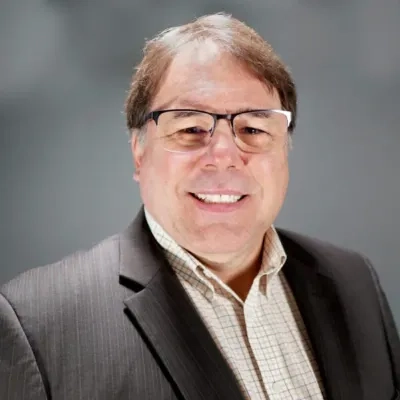
Examine Family Dynamics Before Medical Decisions
As a therapist who has worked with families during major life transitions, I have learned that the most overlooked consideration is addressing the family's emotional roles and communication patterns before delving into medical decisions. Many families have one person who has always been the "decision maker" or "caretaker," and end-of-life planning can either reinforce these dynamics or create unexpected power struggles.
I use what I call "relationship mapping" first - identifying who typically handles crisis decisions, who receives emotional support from whom, and where communication breaks down. In one case, three adult children could not agree on their father's care because they had never learned to communicate as equals; the oldest always made decisions while the youngest felt unheard. We had to address these patterns before they could have productive conversations about his wishes.
My approach begins with individual conversations about fears and expectations, then brings everyone together with ground rules for respectful dialogue. I have found that when families practice healthy communication during less charged moments, they are better equipped to handle the bigger decisions. The key is recognizing that family dynamics do not pause for medical crises - they often intensify.

Identify True Decision-Makers in Family System
From my experience working in inpatient psychiatric hospitals with adults and adolescents, I've seen how family dynamics completely shift when serious medical decisions arise. The most important consideration is identifying who the actual emotional decision-maker is versus who holds the legal authority, because they're often different people.
I approach these conversations by first mapping out the family system during our sessions. In one case, an elderly client's daughter held power of attorney, but the son was the one everyone actually turned to for major decisions. This created tremendous guilt and conflict when end-of-life choices needed to be made quickly.
My counseling style focuses on getting everyone in the room talking about their fears before the crisis hits. I use family therapy techniques to help identify communication patterns and unspoken expectations. Many families avoid these discussions because they think it's "giving up," but I frame it as protecting relationships during the most vulnerable times.
The breakthrough usually comes when I help families separate their love from their decisions. I've worked with clients who felt choosing comfort care meant they loved their parent less, when actually it meant they were honoring what that person valued most. Getting clarity on values versus medical procedures changes everything about how these conversations unfold.

Focus on Patient's Core Values
The most important consideration is to shift the conversation away from a rigid checklist of medical interventions. Instead, the focus should be on a deep exploration of the patient's core values. The goal is to move beyond sterile questions about procedures and get to the heart of what makes life meaningful for that individual.
The truly critical question then becomes, "What does a good day look like for you?" Defining this—whether it's being free from pain or able to converse with grandchildren—becomes the guiding principle for all future decisions. This empowers families to act as true advocates, ensuring that care aligns with the person, not just the prognosis.
My approach to this sensitive topic is grounded in starting the conversation early, long before a crisis hits. In the calm of a routine appointment, I approach it with gentle, open-ended questions:
Frame it collaboratively. I often start by saying, "I'd like to talk about something that's important for all my patients as they plan for the future. I want to make sure I fully understand what matters most to you, so we can ensure your care always reflects your wishes."
Ask about values, not just procedures. I'll ask questions like, "What are your most important hopes for your quality of life moving forward?" or "When you think about the future, what are your biggest fears or worries?" This opens the door to discussing their values without the immediate, and often frightening, focus on specific medical treatments.
Listen more than you speak. In my psychiatric practice, the most powerful tool is listening. I allow for silence and give the patient and their family space to process. I listen for the emotions behind their words—fear, love, guilt, or confusion—and I validate them by saying things like, "I know this is difficult to think about, and I appreciate you sharing this with me." This transforms a daunting task into a shared, supportive, and empowering dialogue.

Honor Personal Beliefs in Care Planning
End-of-life care for geriatric patients is challenging, especially with heavy family involvement in decision-making. Traditions and personal beliefs are a sensitive part of end-of-life care, and it's crucial to listen to patients' preferences and ensure their beliefs are honored. Regardless of how unconventional their personal beliefs or traditions may be, it's important to focus on active listening by asking open-ended questions such as, "What matters most to you in your care?" and giving full attention to their responses without interruption.
You may not fully agree with them, but it's beneficial to validate their feelings with statements like, "I hear how important this is to you." Show respect for cultural values by asking if there are specific traditions or beliefs they'd like to have reflected in their care plan. As the body is already failing, the best approach is to take care of the mind, and at times like these, personal beliefs and traditions are key.

Integrate Directives into Treatment Discussions
After 25 years of treating gastrointestinal conditions, I've learned that the most critical consideration is timing these conversations around the patient's medical clarity. Many of my older patients with digestive cancers have periods where pain medication or disease progression affects their cognitive function, creating narrow windows for meaningful discussions.
I've found success approaching this through what I call "medical milestone conversations." When I'm discussing colon cancer staging with families, I naturally weave in questions about treatment preferences at each stage. For instance, when explaining that Stage 1 typically only needs surgery while Stage 4 requires combination therapies, I ask patients what level of intervention feels right to them.
One case that changed my approach involved an 82-year-old patient with advanced colon cancer. Instead of waiting for a separate "advance directive meeting," I integrated these discussions during our treatment planning sessions. When reviewing his chemotherapy options, I asked about his priorities - quality time with grandchildren versus aggressive treatment. This felt natural rather than like a dreaded "death talk."
The key is making these conversations feel like extensions of medical care rather than separate emotional events. Patients respond better when advance directives feel like practical medical planning, not philosophical discussions about mortality.

Communicate Honestly About End-of-Life Care
Discussing the end of a patient's life can be quite difficult but absolutely necessary for a better transition into bereavement for the loved ones of the patient.
No one is prepared for the death of a loved one, but knowing that quality of life is being assured is comforting, and that peace of mind is essential for the family. Also, the patient, if they are in full use of their faculties, finds peace in knowing that they can express their last wishes and that these will be fulfilled.
In my practice, I always try to be honest with the family and the patient, not to hide information or romanticize it, and I have found that people appreciate this. I always address them with respect and with the solemnity that the occasion deserves.
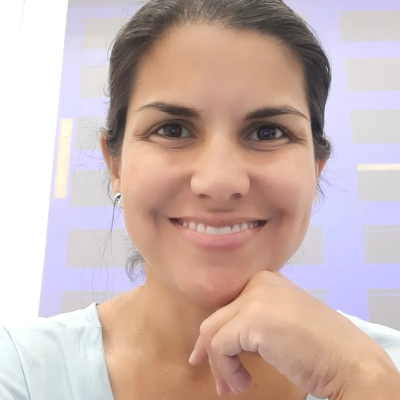
Understand Legal Rights for Care Decisions
Through my years representing nursing home abuse cases, I've learned that the most crucial consideration is ensuring families understand their legal rights regarding care decisions before emotions run high. Many families don't realize that under the Nursing Home Reform Act of 1987, residents have specific legal protections around their care choices that facilities must honor.
I approach these conversations by first explaining the legal framework that protects their loved one's autonomy. When families understand that advance directives aren't just medical documents but legally binding instructions that nursing homes must follow, it shifts the conversation from emotional pleading to empowered decision-making. This knowledge gives families confidence to advocate effectively.
One case that stands out involved an 82-year-old client whose family was being pressured by a facility to agree to aggressive interventions he didn't want. Once I explained their legal standing under federal nursing home regulations, they felt empowered to enforce his wishes rather than feeling helpless against institutional pressure.
The key is timing these legal discussions before a crisis hits. I always tell families that understanding their rights when everyone is thinking clearly prevents the kind of institutional manipulation I see in abuse cases, where vulnerable seniors' wishes get overridden during medical emergencies.

Manage Family Trauma Responses First
Having worked with clients aged 3-103 over 37 years, I've noticed that the most overlooked aspect is addressing the family's own trauma responses that get triggered during these conversations. Many adult children shut down or become combative because discussing their parent's mortality activates their own unprocessed grief and abandonment fears.
I approach this by first acknowledging that these conversations are inherently traumatic for everyone involved. Before diving into logistics, I help families recognize their fight-flight-freeze responses. When a daughter suddenly gets angry about DNR discussions, she's often in a trauma state where her brain literally cannot process the information being presented.
The game-changer is using what I call "grounding before guidance." I teach families simple bilateral stimulation techniques - like butterfly hugs or alternating heel taps - to regulate their nervous systems before continuing the conversation. This isn't touchy-feely stuff; it's neuroscience. When our amygdala is hijacked by the threat of loss, our prefrontal cortex goes offline and we can't make rational decisions.
I had one family where the 85-year-old father wanted comfort care only, but his three sons kept arguing about aggressive treatments. Once we regulated their nervous systems first, they could actually hear their father's wishes instead of projecting their own panic onto the situation.

Recognize Cultural Differences in Decision-Making
Having worked with over 100,000 residents across California's affordable housing communities, I've seen how cultural sensitivity shapes end-of-life conversations. The most important consideration is recognizing that different communities have vastly different relationships with death and medical decision-making.
I approach these conversations by first understanding the family's cultural background and support systems. In our senior housing programs, I've noticed that formerly homeless individuals often have fractured family relationships, making it crucial to identify who they actually trust with these decisions. Sometimes it's a neighbor they've known for two years rather than a distant relative.
The key is creating multiple touchpoints rather than one heavy conversation. During our regular wellness checks, I weave in questions about their values and preferences naturally. When we achieved that 98.3% housing retention rate, part of our success came from these ongoing relationships where residents felt comfortable sharing their deepest concerns about aging in place.
I always start by asking about their fears and hopes rather than jumping into paperwork. One resident told me she was terrified of being a burden, which opened up a completely different conversation about her support network and what dignity meant to her. That personal insight shaped how we helped her document her wishes.
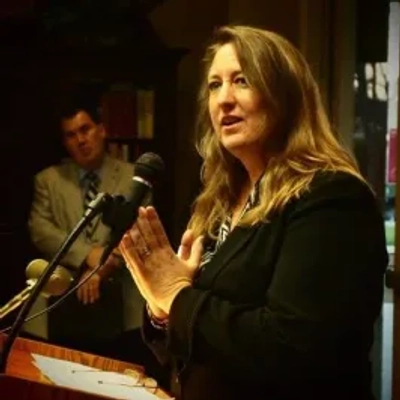
Clarify Medicare Coverage for End-of-Life Care
As an insurance specialist who has worked with hundreds of Medicare clients, I've learned that the biggest barrier isn't paperwork—it's the disconnect between what families think Medicare covers versus reality. Most people assume Medicare handles long-term care and hospice indefinitely, but Original Medicare only covers hospice if you're expected to live six months or less.
I always start these conversations during Annual Enrollment Period reviews, not during a crisis. When I'm helping a 68-year-old client compare Medicare Advantage plans, I'll mention how different plans handle hospice benefits and ask if they've considered what "comfort care" means to them. This approach feels natural rather than morbid.
The timing approach works because families are already thinking about healthcare coverage. One client told me she had been avoiding the topic with her dad for years, but when we reviewed his Medicare Supplement options together, he actually brought up his preferences himself. He wanted to know which plan would let him stay home longer if he got sick.
I've found that framing it around insurance coverage opens doors that direct conversations about death often close. When people understand their financial options first, they're more willing to discuss their personal wishes second.

Create Accessible Medical Decision Roadmap
Having worked with Nevada families for over four decades, I've learned that the most overlooked consideration is ensuring your chosen healthcare agent actually knows where to find your advance directives. Nearly 75% of people don't have these documents at all, but even those who do often fail this crucial step.
I approach this by having families create what I call a "medical decision roadmap" during our planning sessions. We document not just their wishes, but exactly where copies are stored - with their physician, in their home safe, with their healthcare agent. I've seen too many families scrambling through paperwork during emergencies because nobody knew the location of critical documents.
One client's family called me frantically from a hospital after their father's stroke. He had detailed advance directives, but they were locked in a safety deposit box that required court orders to access. We now recommend keeping copies in multiple accessible locations and ensuring your healthcare agent has immediate access to originals.
The empathy piece comes from treating these conversations as practical family logistics rather than morbid planning. When I frame it as "making sure your wishes are easily found and followed," families engage more readily than when discussing abstract end-of-life scenarios.
Normalize End-of-Life Planning Conversations
After eight years of helping clients navigate anxiety, trauma, and grief, I've learned that the biggest barrier in end-of-life conversations isn't the medical complexity—it's the shame and guilt that families carry about having these discussions at all. Many families feel like they're "giving up" on their loved one by even bringing up advance directives.
I always start by normalizing the conversation itself. I tell families that planning for end-of-life care is actually one of the most loving things they can do—it's about honoring their loved one's autonomy and reducing future suffering for everyone involved. This reframe helps lift the emotional weight before we dive into specifics.
The key is creating what I call "permission to speak truthfully." I had one client whose 78-year-old mother kept deflecting every attempt to discuss her wishes with humor and subject changes. We found the mother was protecting her daughter from her own grief, while the daughter was trying to protect her mother from feeling burdensome. Both were silently suffering.
I've found that explicitly addressing these unspoken protection patterns transforms the entire dynamic. When families can acknowledge they're all trying to protect each other, they can finally start having honest conversations about what dignity and comfort actually look like for their specific situation.
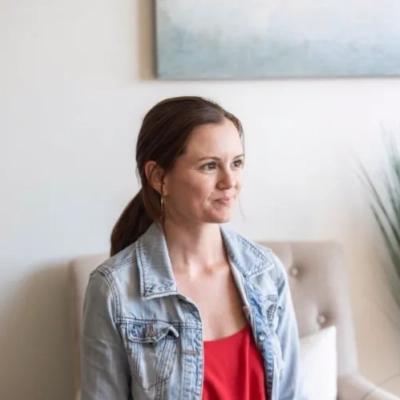
Balance Patient Autonomy with Family Support
As a therapist who works with families navigating complex life transitions, I've found that the most important consideration is helping families understand that grief often begins long before death occurs. When we're discussing end-of-life care, family members are already mourning the loss of who their loved one used to be.
I approach these conversations by focusing on the emotional safety of everyone involved, particularly the patient's need for autonomy and dignity. In my practice, I've seen how families can get stuck in roles—adult children trying to "protect" their aging parent by making decisions for them, which often strips away the very dignity the patient needs most during this vulnerable time.
The key is creating space for the patient to express their fears about losing control or becoming a burden. I often ask, "What would help you feel most like yourself during this time?" One client's 78-year-old mother shared that she was terrified of her family seeing her "fall apart," which completely shifted how they approached her care planning.
My soul-mind-body approach helps families recognize that honoring someone's spiritual and emotional needs is just as crucial as managing their physical care. When families can hold space for these deeper conversations about identity and legacy, the practical decisions about advance directives naturally follow with much less conflict.

Prioritize Mental Health in Advance Planning
Through my work at Thrive Mental Health, I have learned that the most critical consideration is addressing the mental health impact of end-of-life discussions on both patients and families. In our programs, we have seen how 40% of families experience significant anxiety and depression when navigating these conversations without proper emotional support.
I approach these conversations by first creating what we call a "safe space" - similar to our vulnerability sessions at Thrive where leadership models openness about difficult topics. I start by acknowledging that discussing mortality triggers passive suicidal ideation in approximately 15% of geriatric patients, so I always assess their emotional state before delving into advance directives.
My strategy involves implementing our "Wellness First" philosophy by scheduling these discussions during optimal mental health windows rather than during crisis moments. At Thrive, we have found that patients process complex decisions 60% better when their baseline anxiety is managed first through techniques like mindfulness-based stress reduction.
The key is treating advance directive conversations as mental health interventions, not just administrative tasks. I ensure families understand that unprocessed grief and anticipatory anxiety can cloud judgment, so we address the emotional component before tackling the practical decisions.

Manage Pain to Enable Clear Communication
After 20+ years of managing acute pain and observing countless families navigate medical crises, I've learned that the most crucial consideration is understanding how pain control directly impacts a patient's ability to participate in important conversations. When someone is in severe pain, they cannot think clearly about their wishes or communicate effectively with loved ones.
I've learned to ask families early: "What does comfort mean to your loved one?" This question gets to the heart of their values without the clinical coldness of standard advance directive forms. One family told me their 82-year-old father's biggest fear wasn't death—it was being unable to recognize his grandchildren due to heavy sedation.
At Pain Specialists of Brighton, I approach this by explaining how different pain management options affect consciousness and quality of remaining time. Some patients choose nerve blocks over systemic opioids specifically because they want mental clarity for final conversations. Others prioritize maximum comfort regardless of alertness.
The key insight from my pain management background is that these decisions aren't just about medical interventions—they're about preserving whatever aspects of themselves patients value most during their final chapter. When families understand the connection between pain control methods and their loved one's ability to remain "themselves," the conversation becomes much more meaningful.
